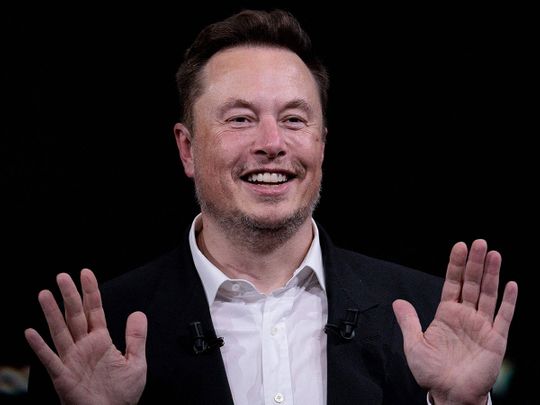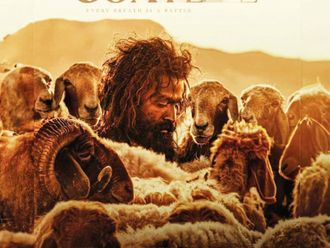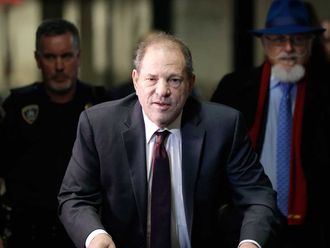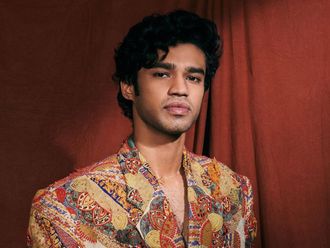
Walter Isaacson's new biography of Elon Musk has made headlines for its now-disputed account of how Musk supposedly scuttled a Ukrainian drone attack by pulling the plug on the Starlink satellite internet service guiding the drones. Both Musk and Isaacson now say the service was already limited in a way that prevented the attack.
But the 688-page tome, for which Isaacson spent two years shadowing Musk, also fills in some other details about Musk's life and career that have garnered less attention. Here are some of the questions about the billionaire Tesla and SpaceX CEO that the book answers, or at least sheds light on - and which Musk has not disputed, at least so far.
Did Musk's father own an emerald mine?
Musk's image as a self-made innovator who bootstrapped his way to Silicon Valley riches has been challenged at times by reports that his father, Errol Musk, was the wealthy owner of an emerald mine in South Africa.
Musk has repeatedly denied the claim. But Isaacson reports that Errol Musk did once swap a small private airplane for a share of the emeralds from three "small" black-market mines in Zambia. Errol Musk sold the emeralds to jewelers, raking in some $210,000, but the mines went bankrupt in the 1980s and little of the money ever made its way to Elon or his siblings. Elon Musk's parents did invest some money in his first start-ups, though not a decisive amount.
Why did Musk have Tesla buy Solar City?
In 2016, Tesla shareholders had been queasy about Musk's plan to acquire SolarCity, a debt-laden solar-panel company run by his cousins, in which Musk had a large personal stake. Musk floated the idea of a futuristic "solar roof" to help justify buying the company.
While Musk may have believed in the idea at first, the company struggled to execute his vision. That became a problem for Musk in 2021, when Tesla shareholders sued him over the SolarCity acquisition. Isaacson reports that Musk made the solar roof his top priority - until he won the lawsuit, after which "his fervor to solve the problem receded."
Is Musk building a "glass house" in Texas?
Musk has denied reports in the Wall Street Journal that he's building a glass house in Texas and that Tesla was possibly going to pay for it. But Isaacson reports what might be a nugget of truth to the allegation: Musk bought a horse farm across the river from Tesla's Giga Texas factory and began working with architect Lord Norman Foster, who designed Apple's futuristic headquarters in Cupertino, Calif., on plans to build a house there. At one point Musk suggested that it should resemble a "shard of glass" coming out of the water, accessible from the shore by a tunnel. But Isaacson says Musk later described it as "more an art project than a house" and opted to "put off building it." The book does not address allegations that Musk or someone else at Tesla may have misused company funds to acquire the glass for the structure.
How many offspring does Elon Musk have, and with whom?
Isaacson's book reveals that Musk and his sometimes girlfriend Grimes secretly had a third child in June 2022, named Techno Mechanicus Musk, or Tau for short. Tau is Musk's third child with Grimes and brings the tally of Musk's known children to 11. Two of those are the twins he fathered with one of his employees, Neuralink executive Shivon Zilis, as Insider first reported last year - and which the pair kept from Grimes, who considered Zilis a friend. Isaacson reports Zilis' pregnancy was via in vitro fertilization, with Musk as the sperm donor. "Because Neuralink is a privately owned company," he writes, "it's unclear how the evolving rules surrounding workplace relationships applied."
Musk has justified his large brood by warning of an "underpopulation crisis" as educated women have fewer children. Zilis tells Isaacson that Musk "really wants smart people to have kids," a stance that could be characterized as a form of eugenics.
Why did Musk buy Twitter?
Isaacson's book depicts Musk's decision to buy Twitter as impulsive, and driven more by his psychological demons than logic. At various points, he theorizes that Musk wanted to "own the playground" after being bullied in school; that Musk's life was going too smoothly at the time and he craved a new crisis; and that he made the decision to buy the company outright rather than simply joining its board while he was in a "manic mood," pulling an all-nighter on a visit to Oracle chairman Larry Ellison's Hawaiian island.
Musk expressed regret at the move on several occasions, according to the book. In a November 2022 meeting with a Tesla design team that was working on the company's idea for self-driving "robotaxis," a "tired and dejected" Musk said of the Twitter acquisition: "I don't know why I did it. The judge basically said I have to buy Twitter or else, and now I'm like, okay, [expletive]."
Why did Twitter botch the Ron DeSantis presidential announcement?
In the final days of 2022, after Musk had laid off most of Twitter's staff, the site began crashing entirely for many users. It continued to suffer occasional glitches and outages over the next several months, and in May 2023 a high-profile Twitter Spaces interview involving Musk and Republican presidential candidate Ron DeSantis was derailed by repeated crashes.
Isaacson's book points to Musk himself as the culprit. Against employees' warnings, Musk had insisted on moving entire banks of servers from a data center in Sacramento to one in Oregon to save money. When they wouldn't do it over the Christmas holiday, Musk and a carful of friends and family decided to drive to Sacramento and start moving the racks themselves.
They managed to move the servers to Portland, Oregon, but Twitter was "destabilized" for months afterward, and the crash that plagued the DeSantis announcement was one of the results. Musk admitted to Isaacson in March 2023: "In retrospect, the whole Sacramento shutdown was a mistake."
Why did Bari Weiss stop contributing to the "Twitter Files?"
Musk hired journalists Bari Weiss and Matt Taibbi to comb through the company's internal records for evidence that Twitter had gone too far in suppressing conservatives' speech. As they tweeted their findings in December 2022, Musk cheered them on. But he publicly broke with Weiss after she criticized him for banning other journalists, including The Washington Post's Drew Harwell, a move she found incompatible with his claims to be a "free speech absolutist."
Isaacson fills in the backstory. Weiss had irked Musk in one of their first meetings by asking how Tesla's business interests in China might affect the way he managed Twitter. "Musk got annoyed," Isaacson writes. When she persisted, "Musk said that Twitter would indeed have to be careful about the words it used regarding China, because Tesla's business could be threatened. China's repression of the Uyghurs, he said, had two sides."
Then, when Weiss was working on her Twitter Files installment focused on how the company suppressed some users' tweets without telling them, she found that Musk had done that himself to an account that tracked the whereabouts of his private jet. Weiss found that "hypocritical" and spoke out when Musk banned the account and began suspending journalists who reported on the ban. Musk promptly cut her access to the Twitter Files.
Why did Musk go to the World Cup in Qatar?
Elon Musk isn't known to be a soccer fan, so there was surprise when he was photographed at the World Cup final in Qatar in December 2022 alongside Donald Trump's son-in-law, Jared Kushner, and a number of Qatari leaders. Isaacson reveals that Musk agreed to appear at the World Cup final as part of a deal with a Qatar-based investment fund to help bankroll his purchase of Twitter to the tune of $375 million.








